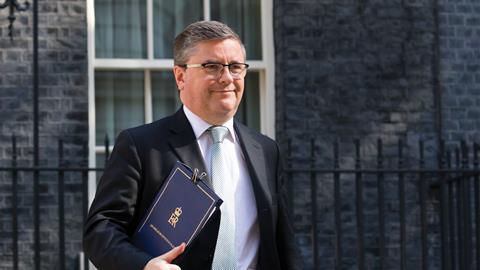Why does the secretary of state for justice seem so relaxed about breaking the law? I am not talking about Robert Buckland’s approach to the United Kingdom Internal Market Bill (‘If I see the rule of law being broken in a way which I find unacceptable, then of course I will go. We are not at that stage.’). I am talking about open justice.

Seven years ago, parliament decided that some civil claims should be tried in secret session, with claimants excluded from the courtroom and not allowed to read the court’s full judgment. Broadly speaking, these are cases in which the court considers that disclosure of sensitive material would damage national security and that a ‘closed material procedure’ would be in the interests of justice. In those circumstances, the Justice and Security Act 2013 allows for security-cleared lawyers – known as special advocates – to represent the interests of excluded claimants as best they can. Special advocates are ‘not responsible to’ excluded parties and must not speak to them or their lawyers.
Before the 2013 act was passed, the only way for ministers to protect sensitive material from disclosure in litigation had been to apply for public interest immunity. If that was granted, the material was excluded from the case. As the government said at the time, that meant it could not use classified information to defend compensation claims. In 2010, for example, ministers agreed to compensate 16 British citizens or residents who had been detained by US forces at Guantanamo Bay in Cuba. Some of them accused UK forces of complicity in torturing them before they were brought to the prison camp.
Unsurprisingly, the reforms encountered opposition in parliament. At a very late stage, there was a concession. James Brokenshire, for the government, introduced a new clause which he said would allow ‘a reviewer to look at the legislation in five years’ time’. It would then be open to parliament ‘to relegislate if it considers that change is needed’.
Section 13 of the act requires a review of how closed material procedures operated between June 2013, when it was brought into force, and June 2018. As the act says, this ‘must be completed as soon as reasonably practicable after the end of the period to which the review relates’.
It follows, surely, that a reviewer should have started work in 2018. Asked about the timing shortly before the act came into effect, Lucy Frazer, a justice minister, explained that the reviewer would need to take account of the latest annual report, which the government aimed to submit to parliament ‘in the autumn’ (in fact, 13 December 2018).
But the reviewer did not start work in 2018; or in 2019; or – so far – in 2020. That’s because no reviewer has yet been appointed.
That’s not just a breach of Brokenshire’s promise. Section 13(1) of the 2013 act says ‘the secretary of state must appoint a person to review the operation of sections 6 to 11…’ (my emphasis). This duty clearly falls on Buckland’s shoulders: all the ministerial excuses for inaction – ‘discussions are taking place at official level’ – have come from his department.
So it is hard to escape the conclusion that, two years on, Buckland is now in breach of his statutory duty. That’s not accepted by his officials, of course, but I cannot see what defence he would have to a claim for judicial review.
What has he got to hide? And why hasn’t he published the annual report for 2018/19, which should have appeared late last year? All it needs is a list of cases and some statistics.
Though it is always tempting to put these things down to serial incompetence, a failure to comply with the law by Buckland and his well-regarded predecessor David Gauke (who resigned in July 2019) suggests that something more is at stake. The obvious person to appoint as a reviewer would be Jonathan Hall QC, the independent reviewer of terrorism legislation, or an equally tenacious predecessor such as Lord Anderson or Lord Carlile. What might they find?
Perhaps that there was no need for closed hearings after all. The reviewer might conclude that they put claimants at too much of a disadvantage. A group of special advocates led by Angus McCullough QC told the government in 2011 that its proposals were ‘unsupportable’. Although the legislation was supposed to allow claims to be defended, many seem to have been settled by the government. The last thing ministers must want is for parliament, as Brokenshire put it, ‘to relegislate if it considers that change is needed’.
I asked the Ministry of Justice. They said ‘the right to a fair trial is a fundamental part of our society and the closed material procedures contain strong judicial safeguards. We will bring forward the statutory review as soon as possible’.
joshua@rozenberg.net
































2 Readers' comments